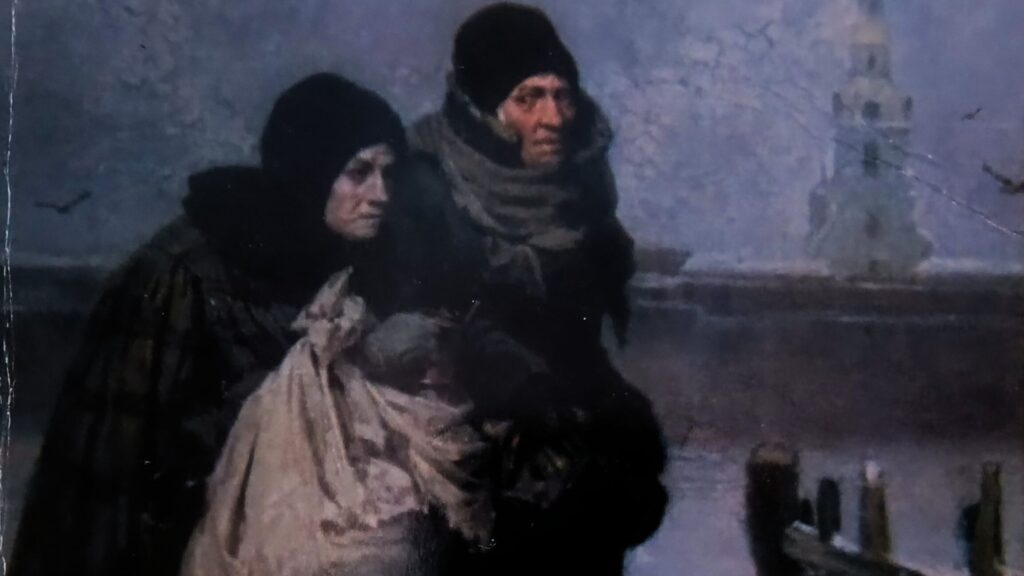Dead Souls is a 19th-century fictional book by Nikolai Gogol, published in 1842. The two-part book, which is incomplete in the second part, is one of the best works of Russian literature. Dead Souls By Nikolai Gogol explores the encounters of Pavel Ivanovich Chichikov, who is looking to scam his way to wealth in a corrupt society. It is a witty and satirical exploration of the characters’ way around societal hypocrisy and bureaucratic inefficiency. So, let’s explore more about the book’s messages and depicting morals.
The Premise of Dead Souls By Nikolai Gogol
Chichikov is the protagonist of the book. He is a relatively unknown aristocratic figure from the city who is travelling to villages in order to buy dead souls. The deal souls represent the peasants who passed away but are still registered alive on landowners’ records. However, he wants to purchase these souls and use them as collateral in order to gain wealth. Thus, this exposes the inefficient Russian government system. In the end, since the second part was burned, no one knows what happened to the protagonist.
Exposing 19th-Century Russian Society Through Satire
Russian society is similar to any present-day country in that corruption is interwoven in every fabric of government departments. Therefore, it gives opportunity to people like Chichikov who want to profit from the flawed system. He was not wrong in that the whole system was corrupt, and he was using it to gain wealth and status in his life. At the same time, the book explores the social hierarchy where greed and materialism have taken control of people’s souls.
Satirical Archetypes Of The Different Characters
Nikolai Gogol explores the social archetypes using different characters and their encounter with Chichikov. This opens room for great conversation with the characters, which adds a satirical aspect to the book. On top of that, you can find hypocrisy and absurdity in some of the conversations and the dialogue, which, at times, is quite funny.
- Pavel Ivanovich Chichikov – The manipulative opportunist
- Manilov – The embodiment of empty politeness
- Sobakevich – The self-serving pragmatist
- Nozdryov – The compulsive liar and gambler
Themes and Social Commentary
Dead Souls exposes the corruption of 19th-century Russian society through absurdity and hypocrisy. The greed of imperial Russia is increasing with each day, and it’s clearly visible in the non-sense of the serf economy. In addition to that, Nikolai exaggerates all these characters, which are not only flawed but, at times, resemble the present people.
The Unfinished Ending and Its Interpretations
It’s a sad thing that Nikolai burned the second half of this book and later died. Dead Souls could’ve been a lot more significant with the entire script. Now, there are plenty of explanations for the unfinished ending and why Nikolai burned it. However, it’s not wrong to say that, without a proper translation, Dead Souls is still a masterpiece of literature and satirical writing.
The Lasting Impact Of Dead Souls By Nikolai Gogol
Nikolai was inspired by Dante’s Inferno when he was writing this book. He wanted to create an atmosphere of dialogue between the protagonist and archetypal characters. Also, many compare his work to other literary giants like Cervantes, which is a great comparison. At the same time, after finishing the book, you can resonate with his message in modern society.
Quotes From Dead Souls By Nikolai Gogol
“However stupid a fool’s words may be, they are sometimes enough to confound an intelligent man.”
“…nothing could be more pleasant than to live in solitude, enjoy the spectacle of nature, and occasionally read some book…”
“A word aptly uttered or written cannot be cut away by an axe.”
“But youth has a future. The closer he came to graduation, the more his heart beat. He said to himself: “This is still not life, this is only the preparation for life.”
“You can’t imagine how stupid the whole world has grown nowadays. The things these scribblers write!”
Final Thoughts On Dead Souls By Nikolai Gogol
Dead Souls is a 19th-century Russian novel by Nikolai Gogol, published in 1842. The story follows Pavel Ivanovich Chichikov, an aristocratic figure who buys dead souls to gain wealth in a corrupt society. The book exposes the corruption in Russian culture and the social hierarchy, where greed and materialism control people’s souls. Gogol uses satirical archetypes and characters to explore the corruption and absurdity of 19th-century Russian society. Despite the unfinished ending, Dead Souls remains a masterpiece of literature and satirical writing, inspired by Dante’s Inferno and Cervantes.
FAQs
What is the Dead Souls book about?
Dead Souls is a satirical representation of Russian society that is full of flawed characters and the whole system. It revolves around the character of Chichikov’s attempt to buy dead souls to gain wealth through exploiting the system.
Who is the main character in Gogol’s Dead Souls?
Pavel Ivanovich Chichikov is the main character of the book.
Was Dead Souls finished?
Gogol, influenced by religious guilt and self-doubt, believed the second part was not spiritually pure and destroyed it before his death.

